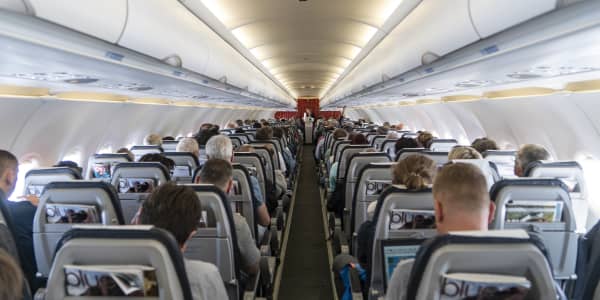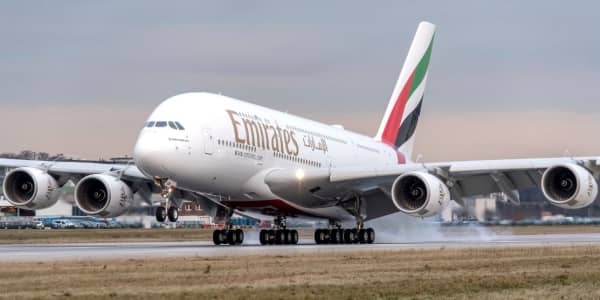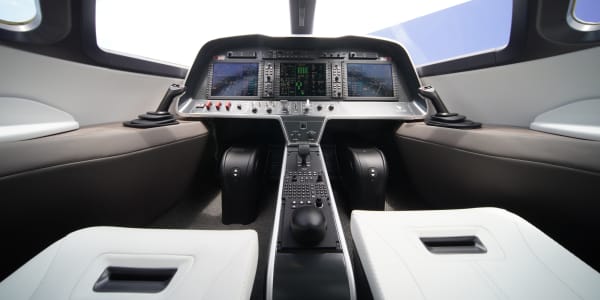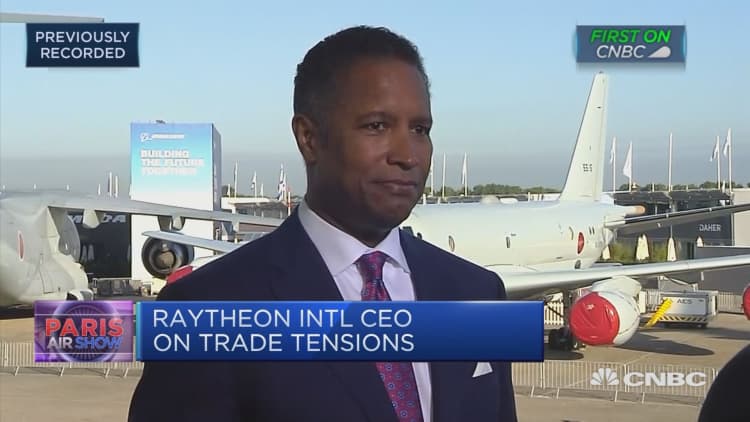
President Donald Trump does not need to worry about an all-stock deal between United Technologies and Raytheon, according to the chief executive of Raytheon International.
Earlier this month, United Technologies and Raytheon announced they had agreed a merger, bringing together a booming aerospace company with a giant government defense contractor.
The deal has raised questions from many lawmakers and regulators about the economic benefits and costs of large mergers. Trump told CNBC in an exclusive interview last week that he was a "little concerned" the proposed deal could harm competition and make it more difficult for the U.S. government to negotiate defense contracts.
When asked for his response to Trump's concerns, Raytheon International CEO John Harris said: "So, it's actually quite the opposite."
"The combination has little to no overlap, less than 1% of what we would offer as a combined company," Harris told CNBC's Phil LeBeau at the Paris Air Show on Monday.
'Merger of equals'
United Technologies chairman and CEO Greg Hayes has also dismissed Trump's concerns about a possible reduction in competition, saying they have very little overlap that would generally spark concern among anti-trust regulators.
"I have been at this for a better part of 35 years, I can't remember a time we were ever competing against UTX (United Technologies)," Raytheon International's Harris said.
"We are so excited about the potential of unlocking the combined capabilities of our two companies, whether it's a strong legacy of innovation, a focus on program excellence and a focus on reducing cost. And, most importantly in this day and age, speed."
The new company, to be called Raytheon Technologies, would become the second-largest aerospace-and-defense company in the U.S. after Boeing with an estimated $74 billion in sales.
If completed, shareholders in Farmington, Conn.-based United Technologies would own 57% of the new company while Raytheon's would own 43% on a diluted basis.
The deal, which the two companies called a "merger of equals," is expected to close in the first half of 2020.
Harris said he did not see the Raytheon and United Technologies deal as an indication of more merger deals in the aerospace industry.
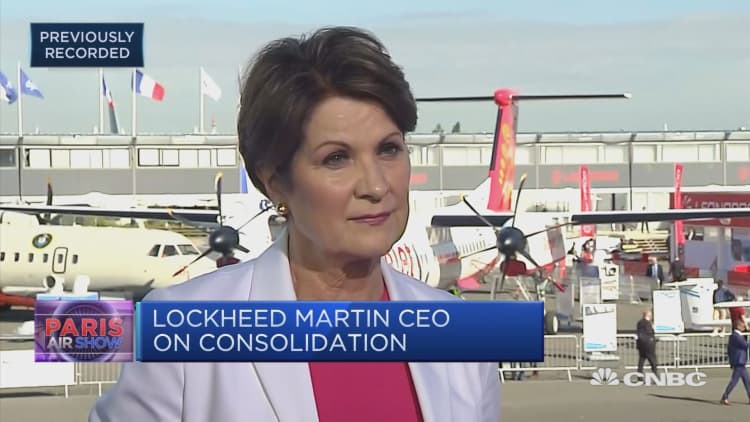
When asked about the combination of Raytheon and United Technologies, Lockheed Martin CEO Marillyn Hewson said: "The competitive landscape is very important to us, we are going to monitor that transaction and we are going to evaluate what it means for us."
"But, what I will tell you amid all of that consolidation and other activity in the industry (is) we are seeing growth for Lockheed Martin," Hewson said.



